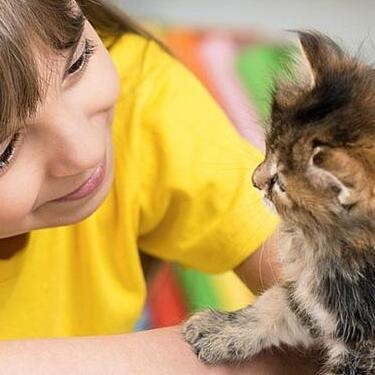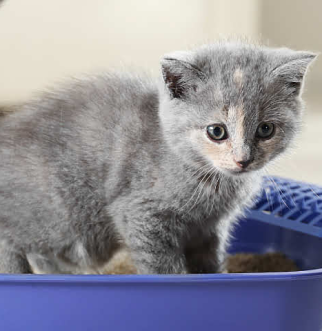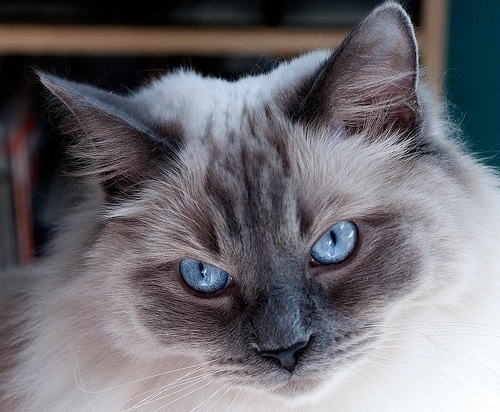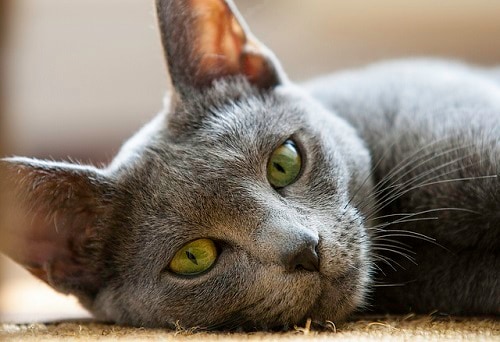
-
Find the right food for your pet
Take this quiz to see which food may be the best for your furry friend.
Find the right food for your pet
Take this quiz to see which food may be the best for your furry friend.
Featured products
 Adult 7+ Perfect Digestion Chicken, Whole Oats & Brown Rice Recipe Dog Food
Adult 7+ Perfect Digestion Chicken, Whole Oats & Brown Rice Recipe Dog FoodScience Diet's breakthrough nutrition supports ultimate digestive well-being & healthy microbiome for dogs age 7+
Shop Now Small & Mini Savory Stew with Chicken & Vegetables Dog Food
Small & Mini Savory Stew with Chicken & Vegetables Dog FoodA delicious complement to the nutrition of Science Diet Small & Mini 7+ dog food
Shop Now Adult Healthy Cuisine Roasted Chicken, Carrots & Spinach Stew Dog Food
Adult Healthy Cuisine Roasted Chicken, Carrots & Spinach Stew Dog FoodDelicious roasted chicken paired with tender vegetables in a succulent stew
Shop NowFeatured products
 Adult 7+ Tender Tuna Dinner Cat Food
Adult 7+ Tender Tuna Dinner Cat FoodWith delicious chunks in a decadent gravy
Shop Now Adult Savory Entrée Can Variety Pack Cat Food
Adult Savory Entrée Can Variety Pack Cat FoodPrecisely balanced nutrition with the delicious taste of savory minced chicken to help fuel the energy needs of cats during the prime of their life
Shop Now Adult 7+ Senior Vitality Chicken & Vegetable Stew Cat Food
Adult 7+ Senior Vitality Chicken & Vegetable Stew Cat FoodImproves Everyday Ability to Get Up & Go
Shop Now -
Dog
- Dog Tips & Articles
-
Health Category
- Weight
- Food & Environmental Sensitivities
- Urinary
- Digestive
- Joint
- Kidney
-
Life Stage
- Puppy Nutrition
- Adult Nutrition
- Senior Nutrition
Cat
- Cat Tips & Articles
-
Health Category
- Weight
- Skin & Food Sensitivities
- Urinary
- Digestive
- Kidney
-
Life Stage
- Kitten Nutrition
- Adult Nutrition
Featured articles
 Does My Pet Hate Me?
Does My Pet Hate Me?Learn tips for bonding with your pet if you've ever thought, 'My dog doesn't like me, or 'Why do I have a standoffish cat?'
Read More Do Dogs and Cats have Belly Buttons?
Do Dogs and Cats have Belly Buttons?Learn whether cats & dogs have belly buttons like humans, what the function is, and if there are any health concerns associated with it.
Read More Why Are Dogs and Cats So Cute?
Why Are Dogs and Cats So Cute?If waggy puppy dog tails and furry kitten yawns make you swoon, you're not alone. Why are cats so cute? And, dogs too! Let's find out!
Read More -

When you're a pet parent, your space is no longer your own, which means you have to carefully consider a cat that's best suited for your lifestyle as well as your living space. If you live in a small space, it's important to know what the best cats for apartments are.
Some cats thrive in smaller environments (and it's not always dependent upon the size of the cat), and others, such as those with an abundance of energy, will be happier in larger spaces.
The following breeds make great apartment cats, but be sure that the feline friend you choose is compatible with you in other ways, too.
Small Living Spaces
If you and your fur baby will be living in close quarters, look for a cat with an easy-going temperament that is content to be close to her pet parent all the time.
Persians, one of the most popular cat breeds, according to the Cat Fanciers' Association, make great apartment cats because of their gentle, easy-to-adapt personality. If you entertain in your pad, a Persian will go with the flow and won't harass your guests. However, with Persian's, you may want to budget for higher-than-average veterinary expenses as this breed tends to have health issues. The Ragdoll is also a good choice because, although a large cat, she's sociable and laid-back, which means she won't get cranky if you're always around. A short-haired option is the Burmese; she's friendly and gets along well with kids and dogs.
Medium to Large Living Spaces
High-energy cats need room to run around, and cats requiring solitude also prefer spacious living quarters that afford them "me time." A fun and loyal breed is the Siamese (but she's a super scratcher, so look into some DIY scratching post ideas.) Because she's a vocal cat, a larger living space works best with her to keep the noise level down. Other active breeds that thrive in larger spaces are the Russian Blue, that love to play fetch, and the Bengal, a chatty cat that stays high-energy throughout her life — and looks like a leopard!
Adopting a Cat from Shelter
Check with your local shelter on the breeds and types of cats they have. While some purebreds can be more predictable in their nature, adopting a mixed-breed cat can be just as advantageous, and usually with fewer hereditary medical conditions. Often they will exhibit the characteristics of their more dominant breed, but the nice part is that you can really see how the cat interacts in certain spaces. Cats at shelters are often placed in larger rooms for exercise and play. You can see how she interacts with the space to get a better feeling of how she would engage at your place. If she tends to stay close to the walls and hides out in sheltered places, she is probably more suited to a smaller apartment where she feels comfortable. However, if you see her zooming all around the room and climbing on things, she has an adventurous spirit and would probably love the space to spread out and explore a large home. No matter what cat you decide to adopt, you can help her adapt to her surroundings by providing her with the essentials.


Tasty Tips
Preparing Your Place for a Cat
A loft-style apartment with plenty of windows gives your cat many opportunities for running, jumping and gazing out the window. If your apartment is small and cozy, she'll find plenty of places to curl up and snooze. No matter what the square footage, your cat will need a private domain (and so will you). As VetStreet points out, cats love small spaces where they can snuggle up and feel secure, and if your apartment is large, it's especially important to provide your cat with spots she can call her own. Try a strategically placed cardboard box or two, a corner of your closet or under a table or bed.
Pay special attention to the number of cat-accessible windows in the space. If the apartment doesn't have many windows, a balcony or patio door makes a great cat-viewing space, too. (For your cat's safety, secure all screens including patio doors to ensure that she won't fall or escape). If the windows or doors look out onto a busy street or a green space filled with trees, flowers and birds, you've hit the cat jackpot!
Non-carpet flooring, such as hardwood, is easier to keep pet hair-free but requires frequent sweeping. If you go this route, be sure to provide your kitty with plenty of soft sleeping spaces in the apartment. For example, invest in a plush sofa, love seat or chair (big enough to accommodate you and your cat, of course). Your fur baby will share your bed with you, which means you must invest in big fluffy pillows and piles of blankets.
Before signing on the dotted line, confirm with the landlord that the apartment really is a pet-friendly place. Read the fine print on the lease agreement to see what your responsibility is as a pet owner. Many landlords and leasing agencies require an additional "pet security deposit" for any potential mishaps, and you don't want to be hit with any surprises down the road.
By considering what living space works best for your lifestyle and what the best cats for apartments are, you and your furry roommate will live happily ever after!


Christine O'Brien is a writer, mom, and long-time cat parent whose two Russian Blues rule the house. Her work also appears in Care.com, What to Expect, and Fit Pregnancy, where she writes about pets, pregnancy, and family life. Find and follow her on Instagram and Twitter @brovelliobrien.
Related products
Related articles

How do you get a cat to lose weight? Learn all about cat foods for weight loss, including how to choose weight control cat food and exercise tips.

Discover how to train your cat, starting with very basic first steps that both reward good behavior and discourage the bad.

Cats are naturally very clean and chances are your kitten will already have learned how to use the litter box from her mother before she comes to live with you.

What is the best food for an overweight cat? Learn all about weight control food for cats, including what's in it and how it works.

Put your cat on a diet without them knowing
Our low calorie formula helps you control your cat's weight. It's packed with high-quality protein for building lean muscles, and made with purposeful ingredients for a flavorful, nutritious meal. Clinically proven antioxidants, Vitamin C+E, help promote a healthy immune system.
Put your cat on a diet without them knowing
Our low calorie formula helps you control your cat's weight. It's packed with high-quality protein for building lean muscles, and made with purposeful ingredients for a flavorful, nutritious meal. Clinically proven antioxidants, Vitamin C+E, help promote a healthy immune system.



